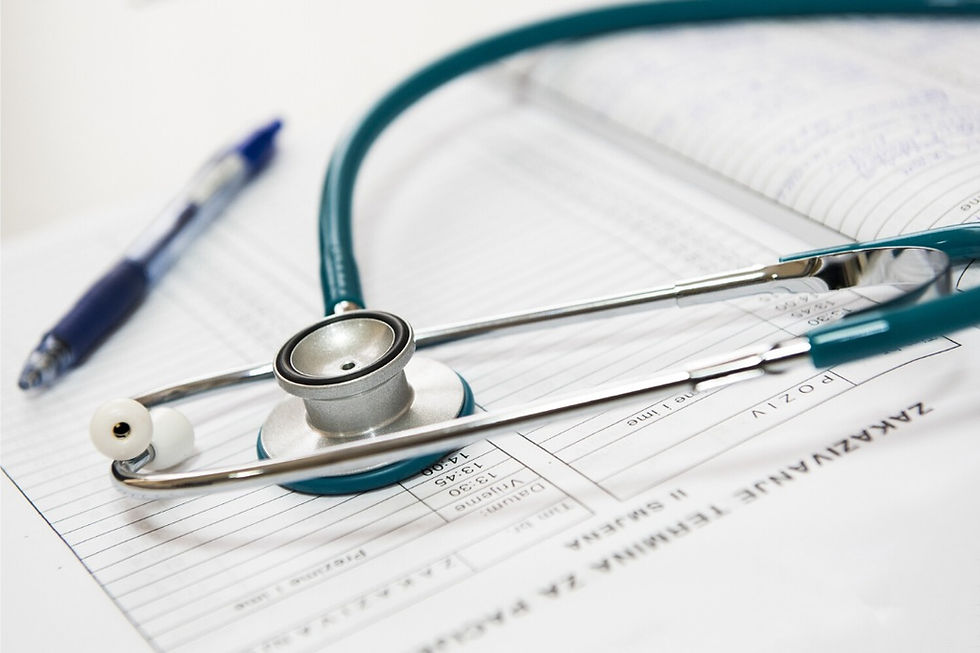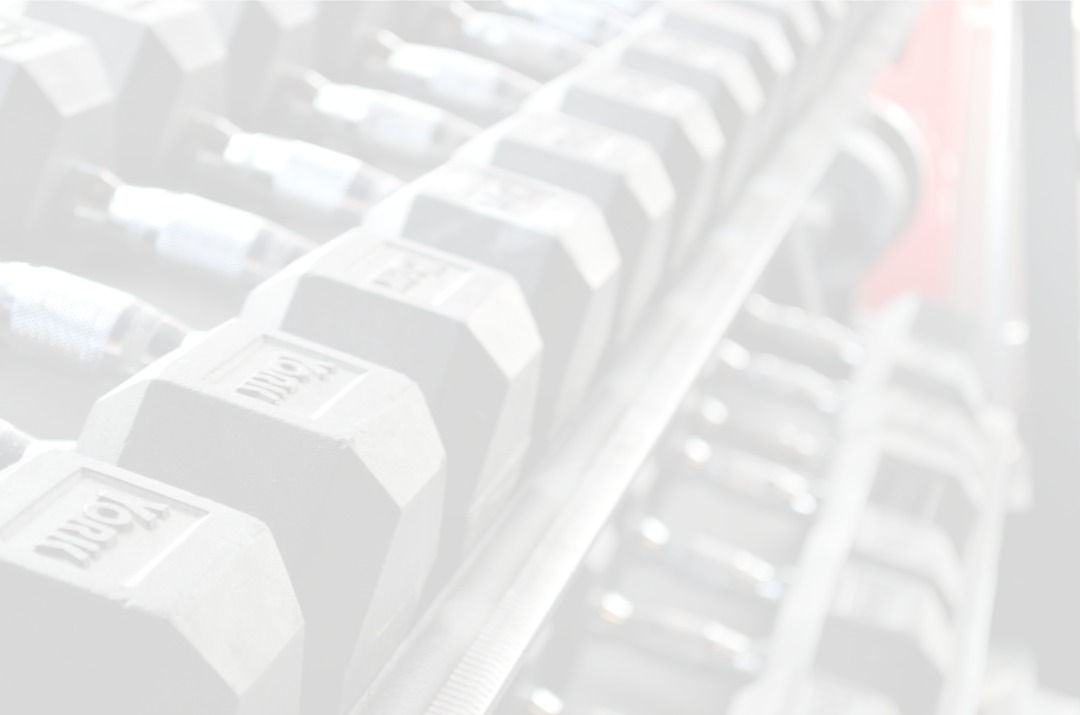Why Health Communication is so Important
- TuttleFitNut

- Mar 17, 2020
- 7 min read
Listen to your Body
Growing up I was like any other kid that got colds and the occasional flu but was never really “sick.” I feel I was very fortunate hearing about some illnesses that my close family and friends’ children are facing today. It wasn’t until I was almost 26 that I began to experience severe stomach pains. At this point in my life I would consider myself very healthy. I was physically active 6 to 7 days a week and was following a very nutritious diet. I had already competed in 4 bikini competitions and had another coming up in a couple of months.
Needless to say, I was confused as to why I was feeling so awful every morning especially after I ate. At first, I ignored it and played it off as cramps or not drinking enough water. The pain continued to get worse and began to occur more frequently. However, the stomach pains weren’t the only issues I was facing. I began to wake up in the middle of the night with horrific heart burn which led me to throwing up stomach bile. This was when I knew something was wrong. I started to journal what I was eating, at what time, and when the pain occurred so I could perhaps pin point what was causing this unbearable stomach pain in the mornings and vomiting stomach bile in the evenings. I also made a doctor’s appointment to meet with my PCP to get some addition help and answers.

When I met with my PCP, she went over my past information and asked what brought me to see her. I went over every little detail about what was going in my life and what symptoms I had. She asked about my parents’ medical history only touching on the basics like heart disease or cancer, and that was the extent of the conversation. Looking back, I wish she asked about my siblings or any biopsychosocial influences such as genetics, stress, nutrition and trauma (Du Pre, 2017 p.12-13). Each one of those could have led to an answer. For example, my sister has a huge list of medical issues – ongoing GERD, Celiac Artery Stenosis, thyroid cancer, she also had her thyroid, gallbladder and appendix removed. Or that I suffer from PTSD from a prior abusive relationship and later I discover that a certain aspect in my diet is a key symptom. All of this could have led to an answer.
It felt like as soon as I began to describe what was happening to me, she immediately said it was acid reflux and prescribed me Omeprazole – I can’t remember the dosage. She wanted to do some blood work and a urine test as well. We scheduled a follow-up appointment 2 weeks later to see if I had improved. Sadly, my symptoms got worse and I was afraid to eat or drink. My blood work and urine test came normal which was good news but I still knew something was wrong. When the pain occurred, I became immobile and didn’t want to move, eat or drink. I remember being really nervous at this point. I already have anxiety and this pushed me over the edge. Countless thoughts ran through my head and all I wanted was answers.
At my follow-up appointment, I described that I wasn’t getting any better but worse. My PCP raised my dosage on Omeprazole and told me to not eat foods with high acidity. At the point I was beyond frustrated. My gut told me what I was experiencing was not a bad case of acid reflux due to the quick onset of symptoms, the severe pain I was feeling after eating food and the fact that I was on a strict diet for my competition that was surprisingly low in acidic foods but I bit my tongue, put trust in my doctor and followed her instructions.
Again, another 2-week follow-up appointment was scheduled and I was hoping for the best. No improvements were made over this time period. I met with my doctor and she recommended that I get an EKG, an ultrasound, a colonoscopy and to submit a fecal sample. She prescribed a different medication than Omeprazole but it served the same purpose – to treat acid reflux. There was no mention of another follow-up appointment. I immediately scheduled my colonoscopy which was to be done around 5 days later. I got the EKG done the follow day along with my submission of a fecal sample (most embarrassing thing I have ever done). At this point, I was lost and confused. My stress levels were through the roof. Not only was I having to go through all this medical stuff but work was at the most stressful time of year for a teacher – state testing. I felt that I couldn’t give my full attention to my work, my family was growing more concerned and here I was sitting in limbo wondering what was wrong with me.
I got my colonoscopy done, for anyone who has not experienced that – it sucks. Luckily, you get instant results but I got the same news for my EKG, colonoscopy and my fecal sample… everything looks normal. I wanted to scream. I officially decided to take things into my own hands.
This has gone too far
A few days later, I was reviewing my food log and thought I made a correlation to the pain and certain foods – fatty foods led to severe stomach pain. Of course, I wanted to test my own theory so I ate 3 cashews. Yes, I took out exactly 3 because at this point, I was scared to eat due to the excruciating pain that could follow. Well, I regretted my decision but later I would be happy that I made this correlation. Those 3 cashews triggered the worst pain I had felt to date. I curled up into a ball on the floor, groaning in pain, not able to coax myself into comfort. That was it. I was not going to wait to schedule another doctor’s appointment to tell my her the same thing over and over again so I got myself up off the floor and drove myself to the ER.
I checked myself in and waited all alone, in pain, until I was called into a room to tell another doctor exactly what was going on for the third time. I pleaded with them that this was not acid reflux but something more. I explained what I discovered about the fatty foods. It truly felt like what I was saying was going in one ear and out the other. They ran an EKG test, did an ultrasound and did more blood work. I knew what the results would say and surely enough they came back with the same results – everything looks normal. Their conclusion was that it must be Gastroesophageal reflux disease aka GERD. GERD occurs when stomach acid frequently flows through your esophagus which can cause irritation in the lining of your esophagus creating inflammation.

I was given a liquid pain relief and said this should get rid of the pain. Guess what? It did not get rid of my stomach pain. I told them that but the nurse made a mumble and I was discharged shortly after this with more medication – Famotidine. The only positive from this experience was they gave me a piece of paper and said “If after two weeks of medication and your symptoms do not improve, we recommend you contact this gastrointestinal doctor.” I’ll be 100% honest here, I was not waiting 24 hours let alone 2 weeks to contact this doctor. I know what normal and healthy feels like. I know that what is going with me is not acid reflux or GERD. I know that there is something seriously wrong with me and I am tired of not being heard.
Listen to the Patient
That morning I contacted the gastrointestinal doctor and scheduled an appointment. I want to say it was the next day. I never thought I would be so happy to go see a doctor, I’m pretty sure I was speeding all the way there.
I do the normal check-in. The technician called my name and I was taken into the back where they took my weight, height and blood pressure. I was brought into the waiting room and was assured the doctor would be with me shortly. Thank goodness she was. She sat down and asked me what was going on. I told her my story and when I finished, she looked me in the eye with the utmost certainty and said “It’s your gallbladder.” She continued with her explanation as to why she believed it was my gallbladder that was giving me issues and what needed to be done from here. She gave me pointers on how to get by until I got a one more test done to confirm.

The last test that I had to get done, hopefully, was a magnetic resonance cholangiopancreatography (MRCP), which can help diagnose stones in the bile ducts and evaluate the overall functioning of the gallbladder. MRCP uses regular MRI imaging technology with a dye that is administered into the bile duct.
Finally, I got some answers. The MRCP confirmed that my gallbladder wasn’t functioning at all. In fact, it was dead. Their theory was that my gallbladder had been overworking itself for years – hence the large amount of bile that I was throwing up towards the end, and it finally gave out. I scheduled my surgery date and got my gallbladder removed. My suffering was finally over with after 6-months of testing and left wondering. My biggest take away from this entire experience is that communication is the single most important tool for health professionals. This allows them to provide healthcare, make diagnoses, and monitor treatment for their patients (Du Pre, 2017 p.14) but the patient must also be able to communicate. We, the patient, want to feel like we are being listened to attentively (Du Pre, 2017 p.16). The only time I felt the communication was well received from both the doctor and myself was when I met with the gastrointestinal doctor.
References:
DuPré A. (2017). Communicating About Health: Current Issues and Perspectives. Oxford University Press.










Comments